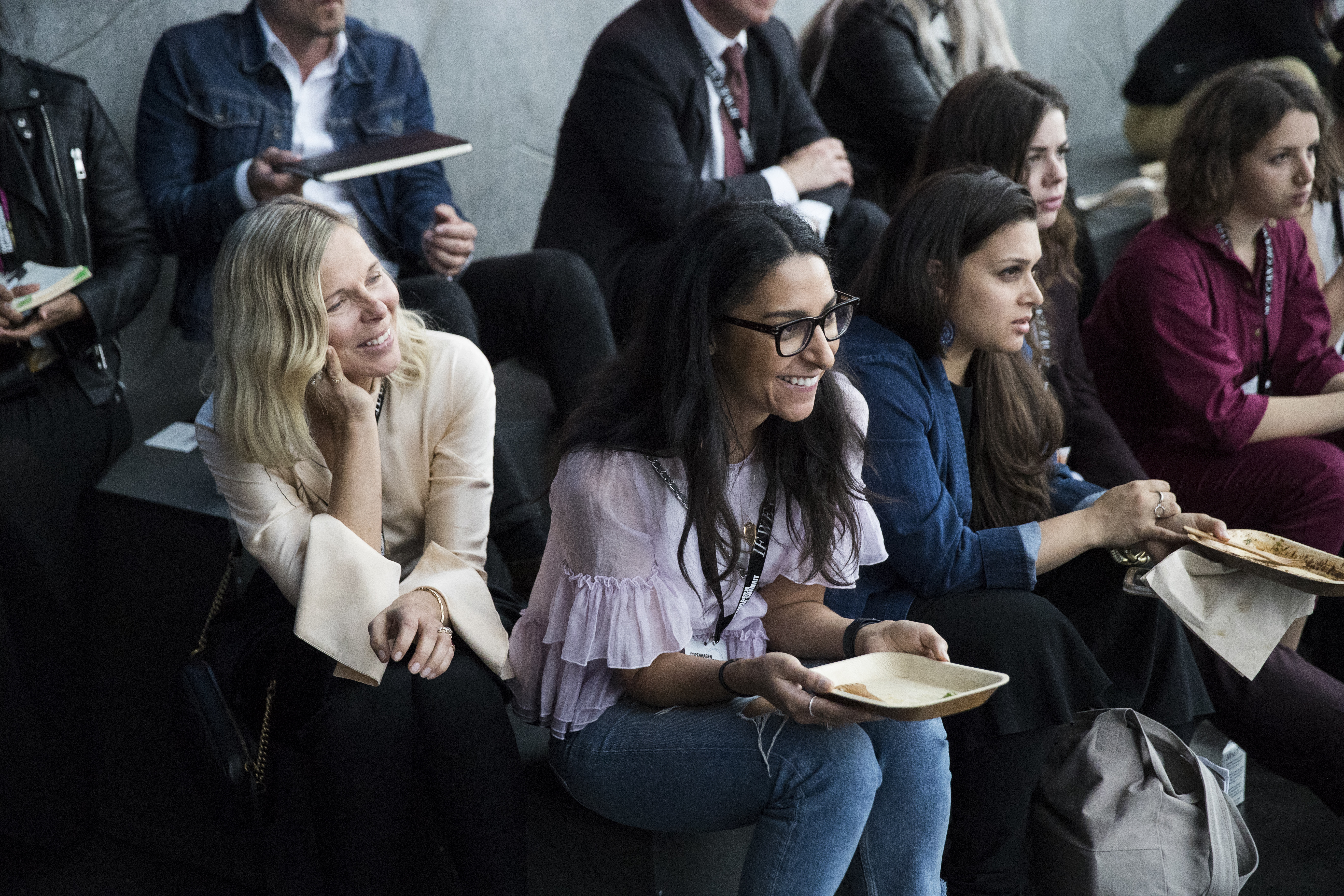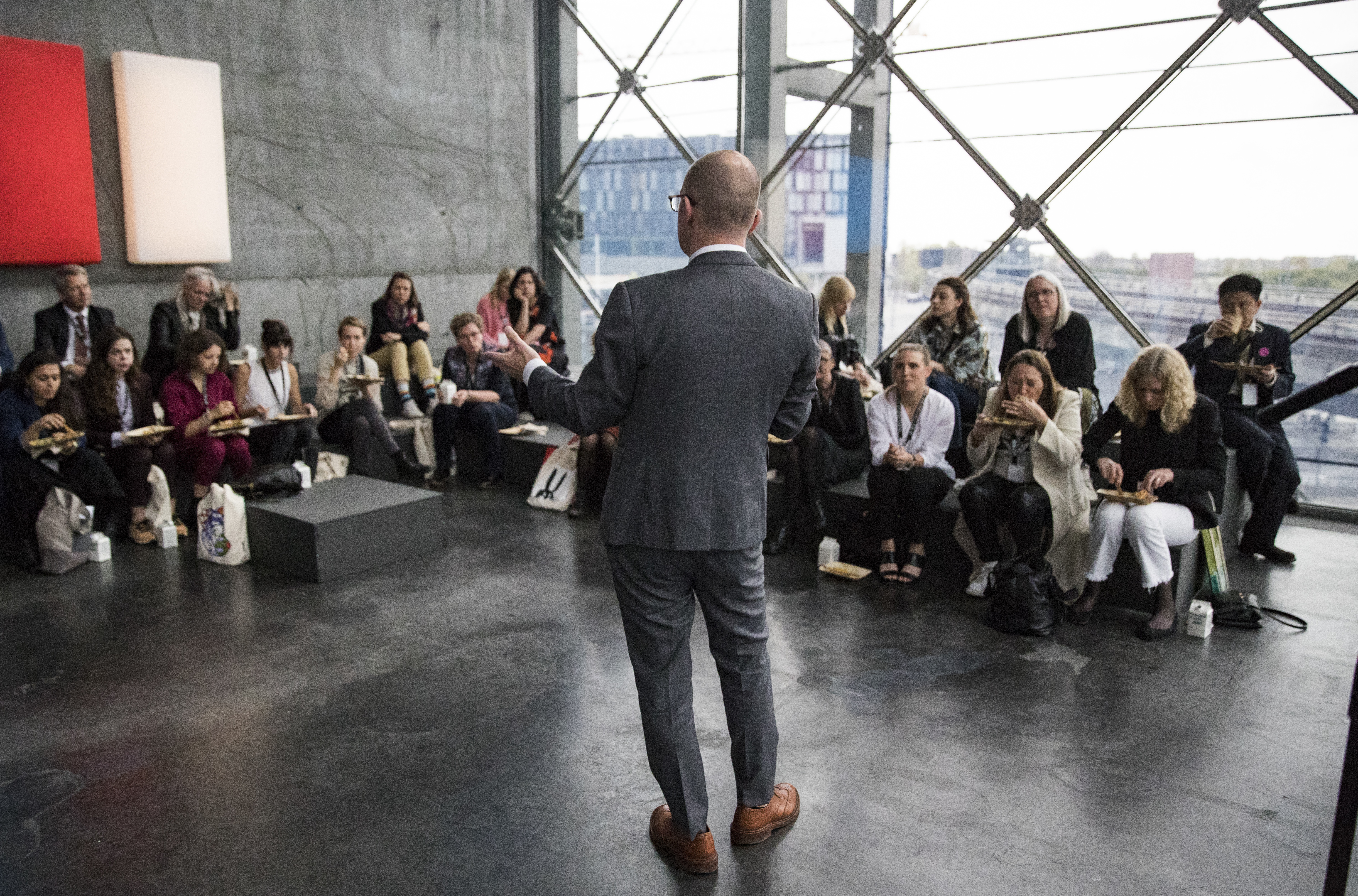About Copenhagen Fashion Summit
The fifth edition of the world’s most important event on sustainability in fashion, Copenhagen Fashion Summit, took place on 11 May 2017 at Copenhagen Concert Hall under the patronage of HRH Crown Princess Mary of Denmark.
As a meeting platform for the fashion sector’s decision-makers, leading NGOs, experts, policy-makers and academia, the Summit created a common understanding and gained industry-wide commitment on the most critical issues facing our industry and planet.
Leaders from the fashion sector, NGOs, policy and academia gathered in Copenhagen around 11 May 2017 to partake in the important discussion on how the fashion industry can contribute to a world beyond the next season.
Furthermore, more than 100 top students, as part of the Youth Fashion Summit presented a draft for the first-ever UN resolution on fashion. At educators Summit, 100 academics coming from leading international institutions came together to give the next generation’s perspective on tomorrow’s innovations.
PARTICIPANT ACTIVATION

This year, major changes have been made to the programme, evolving the Summit into a much more interactive forum to inspire action and innovation. By reinventing the format of networking sessions and closed door meetings, we expanded our attendees' knowledge and experiences regarding new business models, technologies and the future of the fashion industry.
The lunch breaks were used as facilitated networking session that allowed participants and speakers to network and discuss. Based on information the participants provided, they were personally invited by a high-profile host to participate in a group lunch session with like-minded people to discuss topics that are relevant to them and their business while enjoying their lunch.
FOUR PATHS TO SUSTAINABILITY AT COPENHAGEN FASHION SUMMIT 2017
As reflected in the breadth of perspectives that were offered at Copenhagen Fashion Summit 2017, sustainability in fashion can be approached from any number of angles and agendas. The information and views that circulate — from data on recycling and waste reduction to arguments on transparency and consumer responsibility — can be a jungle to navigate. Moreover, professionals in certain areas and positions may want to focus on a given concept or direction, while others may want to pursue a broad overview of developments pertaining to sustainability in the industry.
That is why the 2017 Summit addressed four specific paths to sustainability: the macro perspective, circular design, supply chain transparency and sustainable consumption. All four paths pertained to topics that are of particular opportunity, as uncovered in the inaugural Pulse of the Fashion Industry report, jointly researched and produced by Global Fashion Agenda and the Boston Consulting Group.
Outcomes of the 2017 Copenhagen Fashion Summit
TANGIBLE SOLUTIONS AND OUTCOMES
This year’s Summit emphasised the need for commitments from participants and provided actual solutions and tangible outcomes. The programme consisted of conversations and panel debates where leading voices and innovative minds shared their view on businesses and new solutions to the pressing challenges facing the fashion industry. That way, Copenhagen Fashion Summit paved the way for actual change happening in the industry.

CALL TO ACTION
The 2017 commitment was a call to action by Global Fashion Agenda to create a unified effort among fashion brands and retailers to increase the extent to which garments and footwear are collected, reused and recycled. We called on them to lead the way and make a public commitment to actively take steps to accelerate the fashion industry´s transition to a more circular system. To achieve the goals and intentions they signed for, a toolbox will provide them with tangible information to do so. Get further information and see who signed the commitment here.
Ground-breaking report on state of the industry
One of the biggest highlights of this year’s Summits was the revolutionary “Pulse of the Fashion Industry” report. The report is a new foundational initiative that was first released this year and was devised in collaboration with our knowledge partner The Boston Consulting Group. This annual report was the first of its kind to summarise where we are as an industry today, advance the business case for sustainability and provide actionable recommendations for companies across the supply chain. Get more information here.


